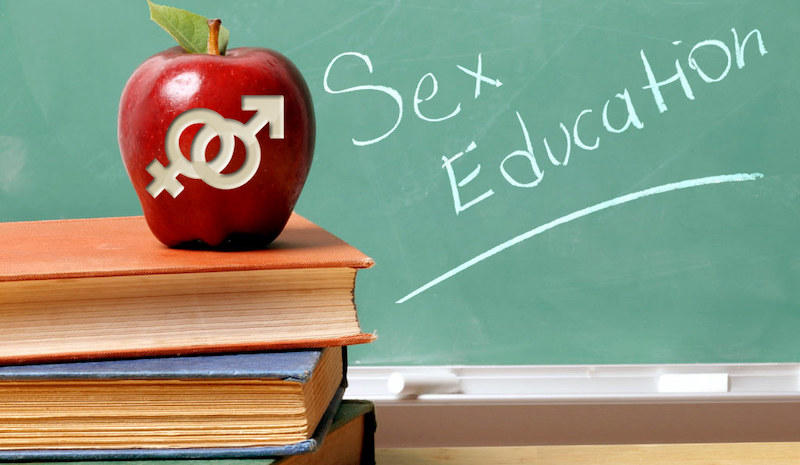Sex education is a critical component of comprehensive education programs that aim to provide individuals with accurate information about human sexuality, relationships, and reproductive health. It encompasses a broad range of topics, including anatomy, puberty, contraception, sexually transmitted infections (STIs), consent, healthy relationships, and more.
Sex education plays a vital role in empowering individuals to make informed decisions, fostering healthy attitudes toward sexuality, and preventing negative outcomes such as unplanned pregnancies and STIs. This article aims to delve into the importance, content, approaches, and challenges associated with sex education, highlighting its positive impact on individuals and society as a whole.
I. The Importance of Sex Education
A. Promoting Sexual Health and Well-being:
Providing Accurate Information: Sex education equips individuals with accurate and evidence-based knowledge about sexual and reproductive health.
Reducing Unintended Pregnancies: Comprehensive sex education programs have been linked to lower rates of unintended pregnancies.
Preventing Sexually Transmitted Infections: Education on STIs and safer sex practices helps reduce the transmission of infections.
B. Promoting Healthy Relationships:
Consent and Communication: Sex education teaches the importance of consent, boundaries, and effective communication in relationships.
Respect and Equality: Education fosters respect for diverse sexual orientations, gender identities, and promotes gender equality.
Preventing Abuse and Violence: Sex education can address issues such as sexual harassment, abuse, and intimate partner violence.
II. Content and Approaches in Sex Education
A. Comprehensive Sexuality Education:
Anatomy and Reproduction: Understanding the human reproductive system, including puberty, menstruation, and fertility.
Contraception and Pregnancy Prevention: Providing information about various contraceptive methods, their effectiveness, and responsible decision-making.
STIs and Safer Sex Practices: Educating individuals about common infections, transmission modes, and promoting the use of barrier methods and regular testing.
B. Healthy Relationships and Consent:
Communication and Boundaries: Teaching effective communication skills, setting boundaries, and promoting respect in relationships.
Consent and Sexual Assault Prevention: Emphasizing the importance of consent, distinguishing between consensual and non-consensual activities, and addressing sexual assault prevention strategies.
C. Gender and Sexual Diversity:
LGBTQ+ Inclusive Education: Recognizing and respecting diverse sexual orientations, gender identities, and promoting acceptance.
Challenging Stereotypes and Discrimination: Addressing stereotypes and promoting understanding and empathy towards marginalized groups.
D. Media Literacy and Pornography:
Critical Evaluation of Media Messages: Teaching individuals to critically analyze media representations of sex and relationships.
Pornography and Its Implications: Discussing the impact of pornography, distinguishing between fantasy and reality, and promoting healthy attitudes towards sexual intimacy.
III. Challenges and Controversies
A. Cultural and Religious Sensitivities: Balancing the need for comprehensive sex education with cultural and religious values and beliefs.
B. Parental Involvement and Consent: Navigating the involvement of parents or guardians in sex education and addressing concerns about parental consent.
C. Curriculum Development and Teacher Training: Ensuring that educators are adequately trained and supported to deliver comprehensive and age-appropriate sex education.
D. Resistance and Opposition: Addressing opposition from individuals or groups who perceive sex education as controversial or inappropriate for young learners.
Conclusion
Sex education is an essential component of a comprehensive education system, promoting sexual health, empowering individuals, and fostering healthy relationships. By providing accurate information, addressing key topics, and encouraging open discussions, sex education equips individuals with the knowledge and skills to make informed decisions and navigate their relationships and sexual experiences responsibly.
While challenges and controversies exist, it is crucial to prioritize the well-being and empowerment of individuals by ensuring access to comprehensive, age-appropriate, and evidence-based sex education. Governments, educational institutions, parents, and communities all play a vital role in supporting effective sex education programs that meet the diverse needs of learners, promote inclusivity, and contribute to healthier societies where individuals can lead fulfilling lives based on informed choices and mutual respect.









Leave a Reply
You must be logged in to post a comment.